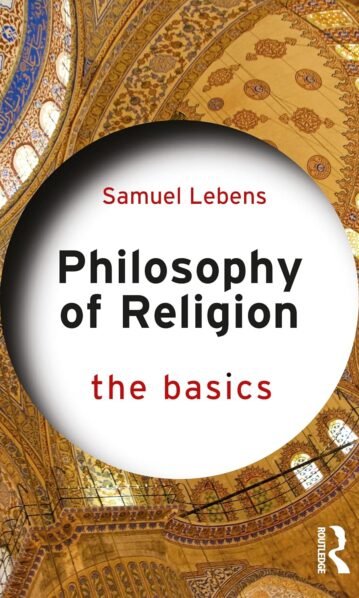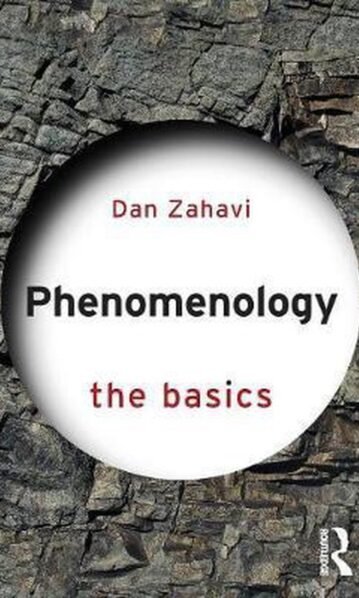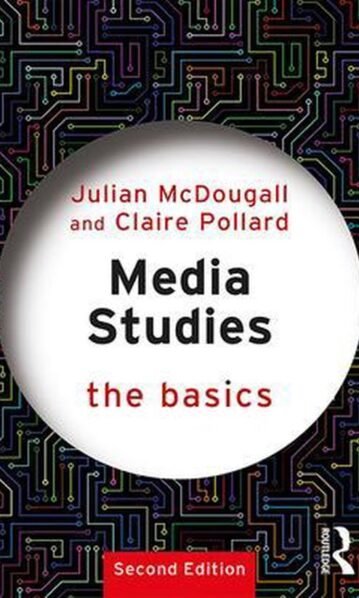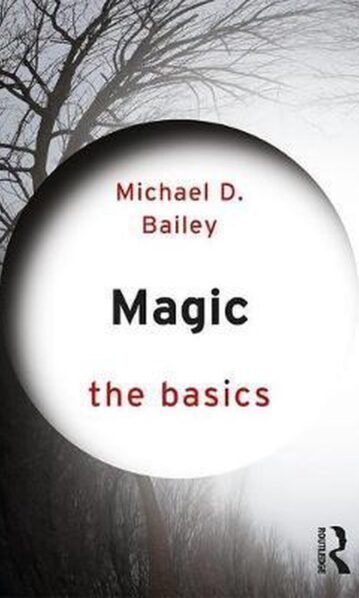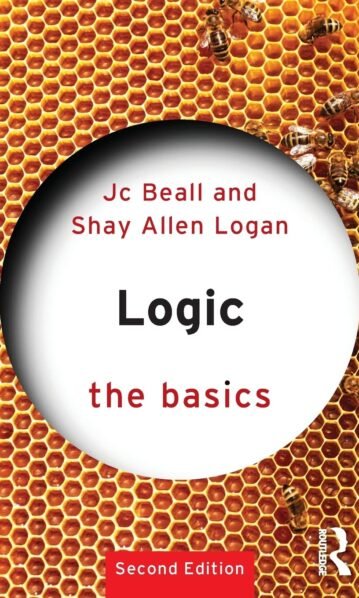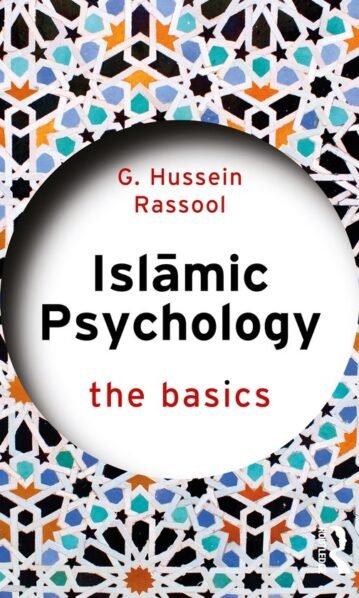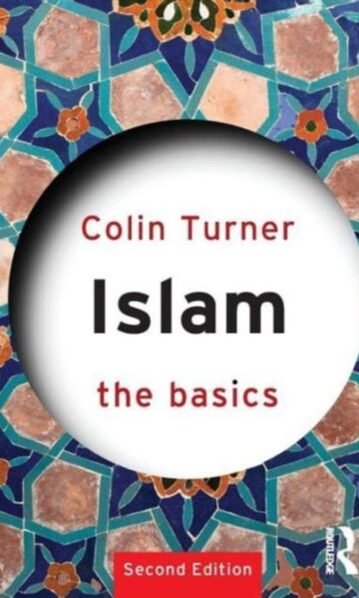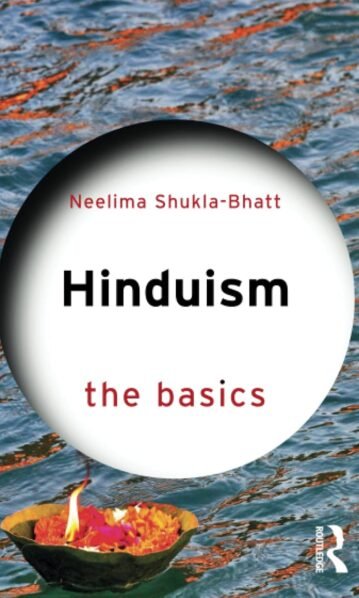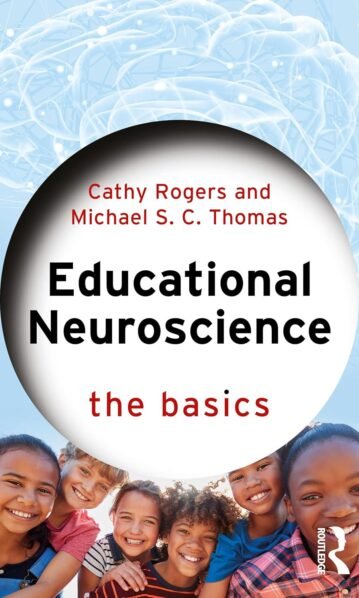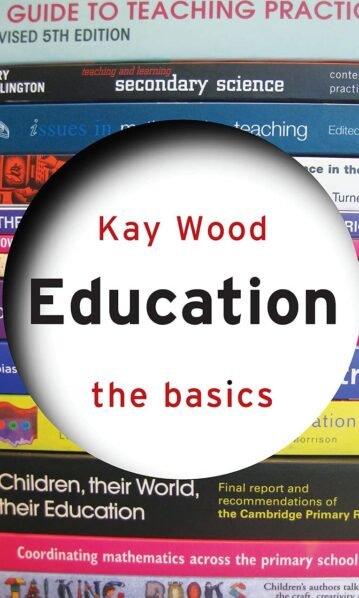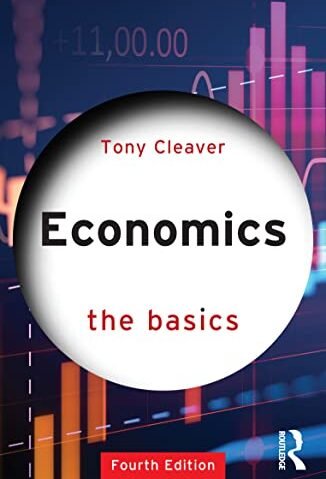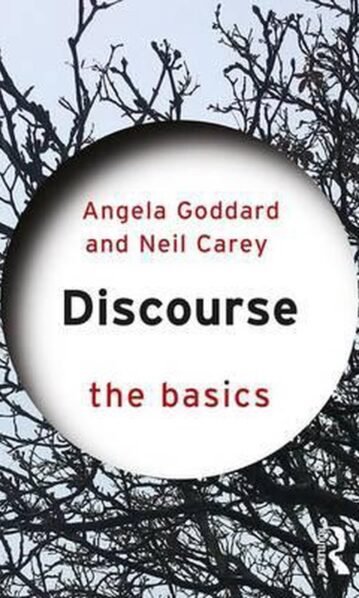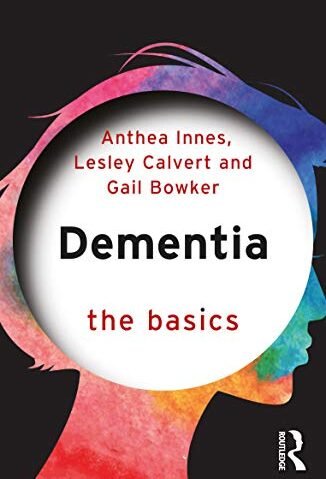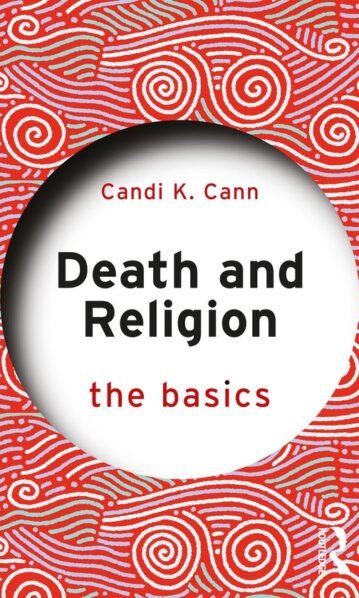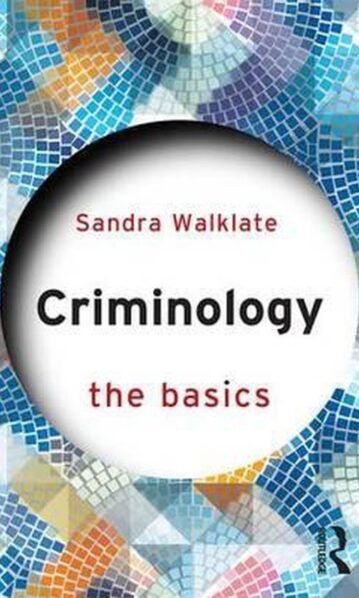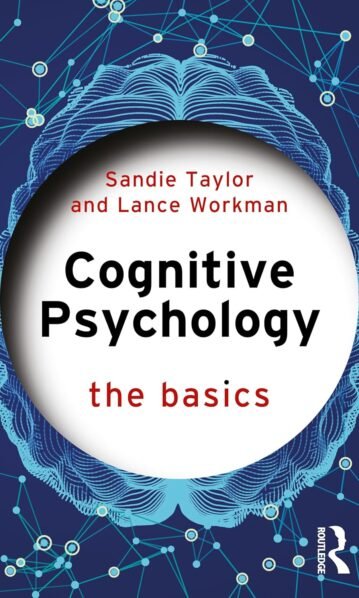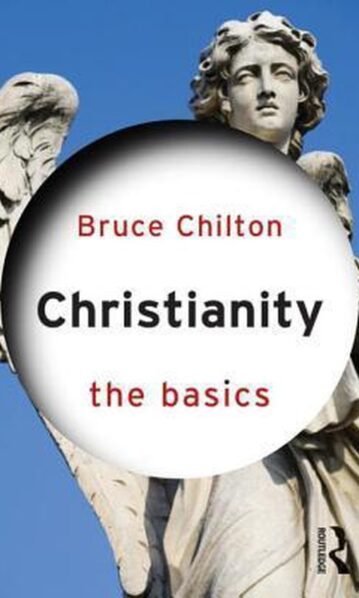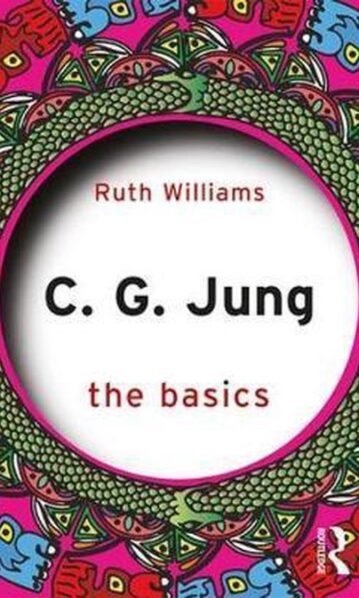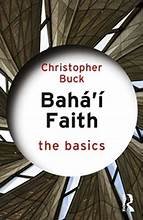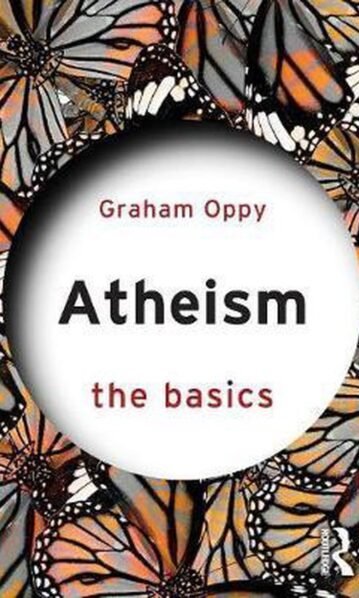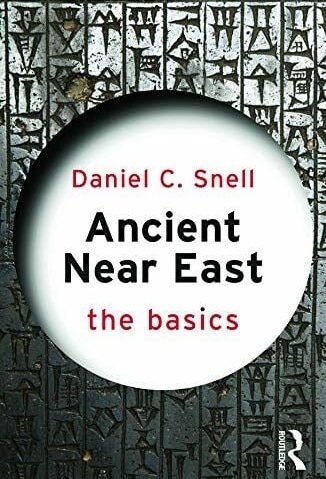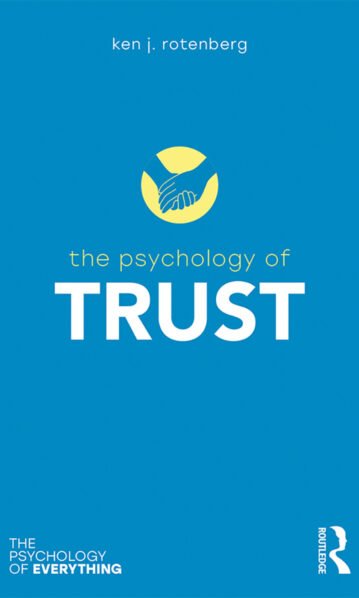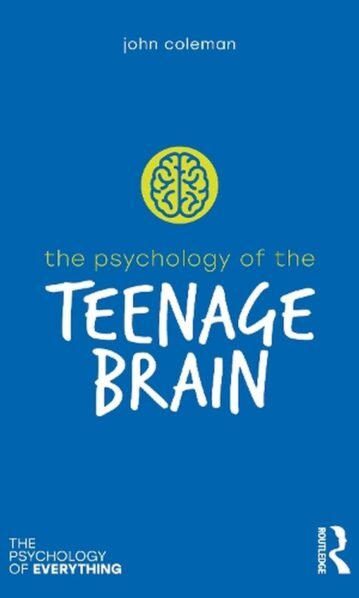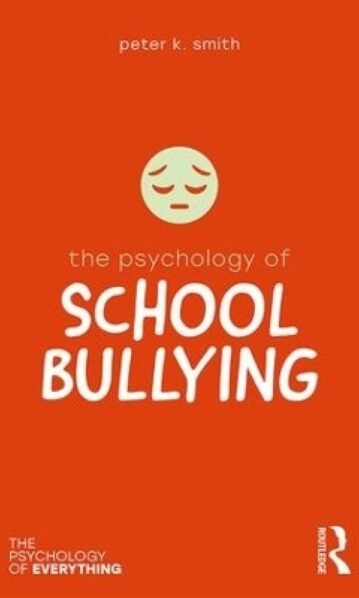ინგლისური
Philosophy of Religion: The Basics
72,00 ₾This book introduces students and other interested readers to the philosophy of religion―a vibrant and growing field of academic philosophy. Readers will be guided through an exploration of classic and contemporary arguments for and against theism. In addition to this crucial. but standard fare. this book looks to probe deeper into the nature and value (or dis-value) of religion itself. Philosophy of religion is becoming more diverse. both in terms of the religious traditions it examines. and the issues that it addresses. This book reflects that fact. engaging with religious traditions from Quakerism to Jainism. Questions and topics covered include:
What is religion?
What philosophical problems arise for the practices of prayer. worship. and meditation?
How might multiple religions co-exist in peace?
If there’s a God. would it be the sort of thing that language could describe?
When and how might it be rational to wager that a particular religion is true?
With a glossary of key terms and suggestions for further reading. Philosophy of Religion: The Basics is an ideal starting point for anyone seeking a lively and accessible foray into the study of religion or philosophy.
Phenomenology: The Basics
72,00 ₾Phenomenology: The Basics is a concise and engaging introduction to one of the dominant philosophical movements of the 20th century. This lively and lucid book provides an introduction to the essential phenomenological concepts that are crucial for understanding great thinkers such as Husserl. Heidegger. and Merleau-Ponty. Written by a leading expert in the field. Dan Zahavi examines and explains key questions such as:
What is a phenomenological analysis?
What are the methodological foundations of phenomenology?
What does phenomenology have to say about embodiment and intersubjectivity?
How is phenomenology distinguished from. and related to. other fields in philosophy?
How do ideas from classic phenomenology relate to ongoing debates in psychology and qualitative research?
With a glossary of key terms and suggestions for further reading. the book considers key philosophical arguments around phenomenology. making this an ideal starting point for anyone seeking a concise and accessible introduction to the rich and complex study of phenomenology.
Personality Psychology
69,00 ₾Personality Psychology: The Basics provides a jargon-free and accessible overview of the discipline. focusing on why not all individuals think. feel. speak. or act the same way in the same situation.
The book offers a brief history of the area. covering a range of perspectives on personality including psychodynamic. behaviourist. humanistic. and cognitive approaches. Also featuring fascinating case studies to richly illustrate the theories discussed. the text looks at influential theories and related research within each of the major schools of thought in personality psychology. Rigorously examining the fundamental principles of personality psychology. the author concludes by outlining the future of the area in relation to cutting edge research and potential future trends.
Exploring the major personality theories that seek to explain why people behave as they do in eight reader-friendly chapters. and written in accordance with British Psychological Society (BPS) guidelines regarding content in Individual Differences. this is an essential introduction for students who are approaching personality psychology for the first time.
Media Studies: The Basics
72,00 ₾Fully updated and revised. the second edition of Media Studies: The Basics is the ideal guide to the changing landscape of media and Media Studies.
There have been seismic shifts in what constitutes (the) media in recent years with technological advances ushering in whole new categories of producers. consumers and modes of delivery. This has been reflected in the way media is studied with new theories. concepts and practices coming to the fore. This new edition addresses core questions including:
Who. or what. are the media?
What are the key terms and concepts used in analysing media?
Where have new media technologies had the biggest impact?
How. and by whom. is media made in the 21st century?
Featuring new case studies. an updated glossary and suggestions for further reading. this is the ideal introduction to Media Studies today for both A Level and undergraduate students.
Marketing: The Basics
72,00 ₾‘…a punchy. stripped-down version of what marketing is all about.’ – The Times Higher Education Supplement
If you have a product you’re looking to market. or you’re seeking to learn more about the potential of online marketing. Marketing: The Basics tells you everything you need to know about the techniques marketers use to push their product to the ‘tipping point’. The essentials of e-commerce are explored and explained. along side more traditional marketing approaches in this revised and updated new edition. This book:
Explains the fundamentals of marketing and useful concepts such as the Long Tail
Includes an international range of topical case studies. such as Obama’s presidential campaign. Facebook. and Google
Also includes a glossary of terms. guides to further reading and critical questions to assist further thinking and study
This lively and user-friendly introduction is perfect for professionals seeking to learn more about subject. and recommended for sixth-form. first-year undergraduate and MBA students.
Magic: The Basics
72,00 ₾Magic: The Basics is a concise and engaging introduction to magic in world history and contemporary societies. Presenting magic as a global phenomenon which has manifested in all human cultures. this book takes a thematic approach which explores the historical. social. and cultural aspects of magic.
Key features include:
attempts to define magic either in universal or more particular terms. and to contrast it with other broad and potentially fluid categories such as religion and science;
an examination of different forms of magical practice and the purposes for which magic has been used;
debates about magic’s effectiveness. its reality. and its morality;
an exploration of magic’s association with certain social factors. such as gender. ethnicity and education. among others.
Offering a global perspective of magic from antiquity through to the modern era and including a glossary of key terms. suggestions for further reading and case studies throughout. Magic: The Basics is essential reading for anyone seeking to learn more about the academic study of magic.
Logic: The Basics
72,00 ₾Logic: The Basics is an accessible introduction to several core areas of logic. The first part of the book features a self-contained introduction to the standard topics in classical logic. such as:
· mathematical preliminaries
· propositional logic
· quantified logic (first monadic. then polyadic)
· English and standard ‘symbolic translations’
· tableau procedures.
Alongside comprehensive coverage of the standard topics. this thoroughly revised second edition also introduces several philosophically important nonclassical logics. free logics. and modal logics. and gives the reader an idea of how they can take their knowledge further. With its wealth of exercises (solutions available in the encyclopedic online supplement). Logic: The Basics is a useful textbook for courses ranging from the introductory level to the early graduate level. and also as a reference for students and researchers in philosophical logic.
Judaism: The Basics
69,00 ₾The oldest of the world’s major faiths. Judaism as practiced today represents a tradition that goes back nearly 6.000 years. Accessible and wide-ranging. Judaism: The Basics is a must-have resource covering the stories. beliefs and expressions of that tradition.
Key topics covered include:
the Torah
Israel – the state and its people
Passover
Reform Judaism. Orthodox Judaism and Zionism
the impact of the Holocaust.
With a glossary of terms and extensive suggestions for further reading. Judaism: The Basics is an essential guide through the rich intricacies of the Jewish faith and people.
Islamic Psychology
62,00 ₾Islamic Psychology: The Basics is a jargon-free and accessible introduction that explores psychology from an Islāmic perspective. and provides a foundation level overview of the fundamental principles and practices of Islāmic psychology. The book introduces concepts. models. approaches. themes. and theories you need to know to study the mind. soul. and behaviour based on Islāmic scripture.
Offering an overview of Islāmic psychology and what Islāmic psychologists do. chapters address key topics including the history of the evolution of the science of the soul. and the psychology of human behaviour and experiences. Rassool examines the concepts of the Fitrah. the Nafs (Self). the Aql (Intellect). the Rūḥ (Soul) the Qalb (Heart). and the concept of Islāmic healing and spiritual interventions. Other themes include the Qur’an and psychology. models and approaches in Islāmic psychology. interpreting Islāmic psychology for modern times. and the contemporary scope of the practice of Islāmic psychology.
Outlining the challenges and solutions of the development of Islāmic psychology and potential future trends. and including features to aid learning. this is the ideal introductory book for students in Psychology. Islāmic Psychology. and Islāmic Studies. as well as professionals including counsellors and therapists. and anyone interested in psychology from an Islāmic perspective.
Islam: The Basics
72,00 ₾Now in its second edition. Islam: The Basics provides an introduction to the Islamic faith. examining the doctrines of the religion. the practises of Muslims and the history and significance of Islam in modern contexts. Key topics covered include:
the Qur’an and its teachings
the life of the Prophet Muhammad
gender. women and Islam
Sufism and Shi’ism
Islam and the western world
non-Muslim approaches to Islam.
With updated further reading. illustrative maps and an expanded chronology of turning points in the Islamic world. this book is essential reading for students of religious studies and all those new to the subject of Islam.
Hinduism: The Basics
55,00 ₾Hinduism: The Basics introduces readers to the third largest. and arguably the oldest. living religious tradition. It opens a vista into the rich and dynamic ethos of the Hindu religious tradition in India and other parts of the world. The book explores the variety of philosophical schools. priestly rituals. and popular practices common in the Hindu faith. presenting the layered diversity of its traditions and how they function in everyday life.
Chapters unpack key concepts from the tradition and discussions about its various aspects. including:
The historical development of Hinduism
Religious practices such as pilgrimage. meditation. and life cycle rituals
The organisation of Hindu society into castes and related social justice issues
The spread of Hinduism around the world. the rise of Hindu nationalism. and other challenges of modernity
The continuum between sacred texts in both elite Sanskrit and in South Asian vernacular languages
Hindu worldviews including karma. reincarnation. and ethics
The vitality of indigenous cultures in every form of Hinduism
Featuring glossaries. timelines. suggestions for further reading. and a list of key deities as well as practices. this is an ideal introduction to Hindu beliefs and traditions for undergraduates and others new to the study of Hinduism.
Gerontology: The Basics
72,00 ₾Human aging is a complex. multi-faceted experience that unfolds over an entire lifetime. While human aging is universal. it is also wildly variable. shaped by individual. social. cultural. political. geographic and historical contexts. Gerontology: The basics explores the field of research. education and practice which takes on the complex and multi-faceted questions. issues and problems of adult aging and old age.
Intended for anyone interested in understanding the origins of gerontology and its unique purview. we invite the reader to join us in a critical examination of what we think we know about becoming and being old and. perhaps. be inspired to engage more deeply in their own travels through the life-course.
Gender: The Basics
72,00 ₾Gender: The Basics is an engaging introduction to the influence of cultural. historical. biological. psychological. and economic forces on ways in which we have come to define and experience femininity and masculinity. and on the impact and importance of gender categories. Highlighting that there is far more to gender than biological sex. it examines theories and research about how and why gender categories and identities are developed and about how interpersonal and societal power relationships are gendered. It takes a global and intersectional perspective to examine the interaction between gender and a wide range of topics including:
Relationships. intimacy. and concepts of sexuality across the lifespan
The workplace and labour markets
Gender related violence and war
Public health. poverty. and development
Gender and public leadership
This new edition includes increased coverage of trans visibility and activism. LGBTQ studies and critical masculinity studies. global developments in women’s political leadership. links between gender and economic wellbeing. and cyberbullying.
Supporting theory with examples and case studies from a variety of contexts. suggestions for further reading. and a detailed glossary. this text is an essential read for anyone approaching the study of gender for the first time.
Forensic Psychology: The Basics
72,00 ₾This edition of Forensic Psychology: The Basics continues to provide an essential and accessible overview of a dynamic and fascinating discipline. Providing an engaging introduction to the core topics within Forensic Psychology. the text combines a discussion of theory with information about the role of a professional forensic psychologist.
This edition has been fully updated throughout to include additional coverage of:
Offender profiling and rehabilitation
The role of psychology in crime prevention
Psychological factors relating to terrorism
Established topics including police psychology. the psychology of crime and delinquency. victimology and victim services. and correctional psychology are also considered in this invaluable guide. It will be essential reading for students across a range of disciplines. from psychology to criminology to law. or general readers seeking a concise and jargon-free introduction.
Educational Neuroscience
62,00 ₾Educational Neuroscience: The Basics is an engaging introduction to this emerging. interdisciplinary field. It explains how the brain works and its priorities for learning. and shows how educational neuroscience. when combined with existing knowledge of human and social psychology. and with teacher expertise. can improve outcomes for students.
Cathy Rogers and Michael S. C. Thomas reveal how neuroscientific evidence is forcing us to question our assumptions about how our brains learn and what this means for education. The chapters in this vital volume step through the brain’s priorities: processing senses and moving our bodies. emotional processing. and the difficult job of dealing with other people. It unpacks the tricky tasks of thinking and learning. considering how memory works and the many systems involved in learning. It draws this all together to offer guidance for effective classroom practice. current and future. Chapter features include key issues for special educational needs and neurodiversity. case studies of novel interventions. debunking of common neuromyths. and guidance for teachers on how to evaluate their own practice.
This bookis a compact. lively introductory text for students of psychology. neuroscience and education and courses where these disciplines interconnect. It will also be essential reading for educational professionals. including teachers. heads. educational advisors and the many industry bodies who govern and train them. as well as anyone interested in the fascinating story of how we learn..
Education: The Basics
72,00 ₾Everyone knows that education is important. we are confronted daily by discussion of it in the media and by politicians. but how much do we really know about education? Education: The Basics is a lively and engaging introduction to education as an academic subject. taking into account both theory and practice. Covering the schooling system. the nature of knowledge and methods of teaching. this book analyses the viewpoints of both teachers and pupils. Key questions are answered. including:
What is education and what is it for?
Where does education take place?
How do we learn?
Who are the students?
What is being taught in schools and universities and why?
What is the state of education across the world?
With further reading throughout. Education: The Basics is essential for all those embarking on undergraduate courses in Education and Education Studies. and for those with an involvement in teaching at all levels.
Economics
68,00 ₾Now in its fourth edition. Economics: The Basics continues to provide an engaging and topical introduction to the key issues in contemporary economics.
The new edition has been fully updated to take into account recent world economic events and key developments. such as the impact of the Covid-19 pandemic and the war in Ukraine. recurring financial crises. deglobalisation and changing patterns in international trade. the rise of China. the digital economy. rising inflation. and housing and currency markets. It covers fundamental issues. including:
How different economic systems function
The boom-and-bust cycle of market economies
The impact of multinational corporations
How price. supply and demand interact
The role of the banking and finance industry
Whether we can reduce poverty and protect the environment
With a glossary of terms. suggestions for further reading and new case studies. this comprehensive and accessible guide is essential reading for first-year undergraduate economics students and anyone who wants to understand how economics works.
Eastern Philosophy: The Basics
72,00 ₾Eastern Philosophy: The Basics is an essential introduction to major Indian and Chinese philosophies. both past and present. Exploring familiar metaphysical and ethical questions from the perspectives offered by a range of eastern philosophies. including Confucianism. Daoism. the main Buddhist and Hindu philosophical schools. as well as Jainism. this book covers key figures. issues. methods and concepts.
Questions discussed include:
What is the ‘self’?
Is human nature inherently good or bad?
How is the mind related to the world?
How can you live an authentic life?
What is the fundamental nature of reality?
With timelines highlighting key figures and their contributions. a list of useful websites. pronunciation guides and further reading suggestions. Eastern Philosophy: The Basics provides an engaging overview of fundamental ideas in eastern philosophy. The second edition has been thoroughly revised and updated to take account of the most recent scholarship. It includes study questions for each chapter. an updated bibliography. a new section on the Yijing and expanded discussion of Indian philosophies and their basis in experience. Eastern Philosophy: The Basics is valuable reading for all students of philosophy and religion. especially those seeking to understand eastern thought.
Discourse: The Basics
72,00 ₾Humans are social animals and are constantly interacting with each other through conversation. written communication. symbols and other expressions . Discourse: The Basics is an accessible and engaging introduction to the analysis of those interactions and the many forms and meanings they can take. The book draws on a range of international case studies and examples from literature. political speech. advertising and newspaper articles to address key questions such as:
What is discourse?
Why are there different approaches to understanding discourse?
How are individual interactions connected with the larger discourses that frame our ways of thinking and behaving?
How can discourse be analysed and researched?
Discourse: The Basics includes subject summaries. a glossary of key terms and suggestions for further reading. It will be of particular relevance to students of language and the social sciences but also useful to all students who are interested in how meanings are made.
Dementia: The Basics
68,00 ₾Dementia: The Basics provides the reader with a clear and compassionate introduction to dementia and an accessible guide to dealing with different parts of the dementia journey. from pre-diagnosis and diagnosis to post-diagnostic support. increasing care needs and end of life care.
Co-authored by an academic. a person living with dementia and a family carer. the book endeavours to raise awareness of dementia. challenge stereotypical and negative ideas about what it means to have dementia and champion a society where people living with dementia can be active as they wish for as long as possible. The authors present an overview of current research at each step of the dementia journey as well as including knowledge from lived experience. enhancing understanding and challenging thinking about what it might be like to live with a diagnosis or to care for a loved one. As a whole. the book emphasises the importance of prioritising the person living with dementia. as well as considering the impact of what any initiative or action might mean for them. their families and their care supporters.
Offering both an accessible introduction to dementia and practical tools. this book will be ideal for health and social care professionals. students of social care. health care and nursing. people with dementia. carers and anyone wanting to understand more about the condition.
Death and Religion: The Basics
62,00 ₾Death and Religion: The Basics provides a thorough and accessible introduction to dying. death. grief. and conceptions of the afterlife in world religions.
It leads readers through considerations of how we understand meanings of death and after-death. and the theories and practices attached to these states of being. with recourse to various religious worldviews: Judaism. Islam. Christianity. Hinduism. Sikhism. Buddhism. Chinese Religions. and Native American belief systems. This inter-religious approach provides a rich. dynamic survey of varying and evolving cultural attitudes to death. Topics covered include:
Religious perspectives of “the good death”
Grief. bereavement. and mourning
Stages and definitions of death
Burial. cremation. and disposition
Remembrance rituals
Religious theories of the afterlife
Death and technology
Featuring a glossary. suggestions for further reading in each chapter and key terms. this is the ideal text for students approaching the intersection of death and religion for the first time. and those in the fields of religious studies. thanatology. anthropology. philosophy. and sociology.
Criminology: The Basics
72,00 ₾Criminology is a discipline that is constituted by its subject matter rather than being bound by an agreed set of concepts or way of thinking. This fully updated third edition of Criminology: The Basics is a lively and engaging guide to this compelling and complex subject. Topics covered include:
the history and development of criminology
myths about crime and offenders
the search for criminological explanation
victims of crime and state crime
crime prevention. cybercrime. and the future of crime control
criminology and intersectionality
This edition also includes new sections on genocide. terrorism. cultural victimology. and Westo-centric thinking.
Concise and accessible. this book utilises chapter summaries. exercise questions and lists of further reading to provide a perfect introduction to this subject.
Contemporary Literature: The Basics
72,00 ₾‘Contemporary Literature’ is among the most popular areas of literary study but it can be a difficult one to define. This book equips readers with the necessary tools to take an analytical and systematic approach to contemporary texts. The author provides answers to some of the critical questions in the field:
What makes a literary text contemporary?
Is it possible to have a canon of contemporary literature?
How does a reader’s location affect their understanding?
How do print. electronic. and audio-visual media impact upon contemporary literature?
Which key concepts and themes are most prevalent?
Containing diverse illustrative examples and discussing the topics which define our current sense of the contemporary. this is an ideal starting point for anyone seeking to engage critically with contemporary literature.
Cognitive Psychology
72,00 ₾Cognitive Psychology: The Basics provides a compact introduction to the core topics in the field. discussing the science behind the everyday cognitive phenomena experienced by us all. The book considers laboratory and applied theory and research alongside technological developments to demonstrate how our understanding of the brain’s role in cognition is improving all the time.
Alongside coverage of traditional topics in the field. including attention and perception; learning and memory; thinking. problem-solving and decision-making; and language. the book also discusses developments in interrelated areas. such as neuroscience and computational cognitive science. New perspectives. including the contribution of evolutionary psychology to our understanding of cognition are also considered before a thoughtful discussion of future research directions. Using real-world examples throughout. the authors explain in an accessible and student-friendly manner the role our human cognition plays in all aspects of our lives.
It is an essential introductory text suitable for all students of Cognitive Psychology and related disciplines. It will also be an ideal read for any reader interested in the role of the brain in human behavior.
Christianity: The Basics
72,00 ₾Christianity: The Basics is a compelling introduction to both the central pillars of the Christian faith and the rich and varied history of this most global of global religions. This book traces the development of Christianity through an exploration of some of the key beliefs. practices and emotions which have been recurrent symbols through the centuries:
Christ. the kingdom of heaven and sin
Baptism. Eucharist and prayer
Joy. divine union and self denial
Encompassing the major epochs of Christian history and examining the unity and divisions created by these symbols. Christianity: The Basics is both a concise and comprehensive introduction to the Christian tradition.
C. G. Jung
72,00 ₾C. G. Jung: The Basics is an accessible. concise introduction to the life and ideas of C. G. Jung for readers of all backgrounds. from those new to Jung’s work to those looking for a convenient reference.
Ruth Williams eloquently and succinctly introduces the key concepts of Jungian theory and paints his biographical picture with clarity. The book begins with an overview of Jung’s family life. childhood. and relationship with (and subsequent split from) Sigmund Freud. Williams then progresses thematically through the key concepts in his work. clearly explaining ideas including the unconscious. the structure of the psyche. archetypes. individuation. psychological types and alchemy. C. G. Jung: The Basics also presents Jung’s theories on dreams and the self. and explains how his ideas developed and how they can be applied to everyday life. The book also discusses some of the negative claims made about Jung. especially his ideas on politics. race. and gender. and includes detailed explanations and examples throughout. including a chronology of Jung’s life and suggested further reading.
C. G. Jung: The Basics will be key reading for students at all levels coming to Jung’s ideas for the first time and general readers with an interest in his work. For those already familiar with Jungian concepts. it will provide a helpful guide to applying these ideas to the real world.
Buddhism: The Basics
69,00 ₾Buddhism: The Basics provides a thorough and accessible introduction to a fascinating religion. Examining the historical development of Buddhism and its presence today. this guide covers:
principal traditions
practices and beliefs
ethical guidelines and philosophy
religious texts
community
With helpful features including a detailed map of the Buddhist world. glossary of terms and tips for further study. this is an ideal text for students and interested readers wanting to familiarise themselves with the Buddhist faith.
Cathy Cantwell is an academic researcher at the Oriental Institute. University of Oxford. She specialises in Tibetan Buddhism. and has worked on eleventh century manuscripts. an eighteenth century scriptural collection. and contemporary Buddhist ritual manuals and practice. She has taught widely in UK Higher Education and is joint author of Early Tibetan Documents on Phur pa from Dunhuang.
Baha’i Faith: The Basics
69,00 ₾Bahá’í Faith: The Basics provides a thorough and accessible introduction to a fascinating. independent world religion. Examining its historical development. current “community-building” efforts and the social contributions of the Bahá’í Faith in the world today. this introduction covers:
Beliefs: Bahá’í spiritual teachings
Principles: Bahá’í social teachings
History: Bahá’u’lláh and his covenant.
Scripture: Bahá’í sacred texts and inspired guidance
Institutions: The Bahá’í Administrative Order
Building community: What Bahá’ís do
Social action: Bahá’í social and economic development projects
Public discourse: The Bahá’í International Community
Vision: Foundations for a future golden age
With features including a glossary of terms. and references to the Bahá’í writings throughout. this is the ideal text for students and interested readers wanting to familiarize themselves with the Bahá’í Faith.
Atheism: The Basics
72,00 ₾Atheism: The Basics is a concise and engaging introduction to belief in the non-existence of deities. Atheism has long fascinated people but debate around this controversial position may seem daunting. In this lively and lucid book. Graham Oppy addresses the following important questions:
• What does it mean to be an atheist?
• What is the difference between atheism. agnosticism. theism and innocence?
• How has atheism been distributed over time and place?
• What does science tell us about atheism?
• Are there good reasons to be an atheist?
• Are there good reasons not to be an atheist?
• What do we mean by ‘new atheism’?
With a glossary of key terms and suggestions for further reading throughout. the book considers key philosophical arguments around atheism. making this an ideal starting point for anyone seeking a full introduction to the arguments between those who hold atheistic beliefs and those who do not.
Archaeology: The Basics
69,00 ₾Archaeology: The Basics. rewritten for this fourth edition. is a short. engaging book that takes the reader on a journey through the fascinating world of archaeology and archaeologists.
Written in a non-technical style by two experienced archaeologists and writers about the past. the book begins by introducing archaeology as a unique way of studying the entire span of the human past from our origins some six million years ago to today. The authors stress that archaeology is a global study of human biological and cultural diversity. After a brief look at early archaeological discoveries. they introduce today’s multidisciplinary archaeology. Then they go on to describe the archaeological record. the archives of the past and the importance of contexts of time and space. How do we find archaeological sites and how do we explore them? Two chapters laced with examples examine these questions. Later chapters describe ancient technologies and how we study them. and the all-important subject of changing ancient environments and climate change. Zooarchaeology. flotation methods. and other ways of reconstructing ancient diet and subsistence lead us into the study of changing settlement patterns across the landscape. Next. they visit the people of the past. either as individuals or groups. calling on bioarchaeology to assist them. Two chapters discuss ancient culture change and the remarkable diversity of ancient societies. and they are followed by an exploration of the spiritual realm. the exploration of the intangible. The final chapter looks at the importance of archaeology in today’s world. Rich in numerous examples and contemporary thinking about archaeology. this book tries to answer an important question: What does archaeology tell us about ourselves?
Archaeology: The Basics is essential reading for all those beginning to study archaeology and anyone who has ever questioned the past.
Ancient Near East: The Basics
69,00 ₾Ancient Near East: The Basics surveys the history of the ancient Middle East from the invention of writing to Alexander the Great’s conquest. The book introduces both the physical and intellectual environment of those times. the struggles of state-building and empire construction. and the dissent from those efforts. Topics covered include:
What do we mean when we talk about the Ancient Near East?
The rise and fall of powerful states and monarchs
Daily life both in the cities and out in the fields
The legacy of the Ancient Near East: religion. science and writing systems.
Featuring a glossary. chronology and suggestions for further reading. this book has all the tools the reader needs to understand the history and study of the Ancient Near East.
The Psychology of Trust
45,00 ₾What makes us trust people? How is trust developed and maintained? Is Western society facing a crisis of trust?
The Psychology of Trust addresses trust issues that are directly relevant to peoples’ experiences in their daily lives. It identifies the factors that cause people to trust, and the consequences of trust for real world issues in health, politics, terrorism, the workplace, and religious faith. It also explores the impact of a lack of trust, and what causes distrust of individuals, groups and organisations.
In a world where trust impacts our daily lives, The Psychology of Trust shows the role trust plays in our relationships, and provides practical guidance regarding our own trust in others.
The Psychology of the Teenage Brain
45,00 ₾Why do teenagers stay up late and struggle to get up in the morning? Do teenagers really take more risks? What is happening with teenagers’ hormones?
The Psychology of the Teenage Brain offers all those involved in teenagers’ lives insight into what’s happening in their brains and how understanding them can improve relationships and communication at this crucial stage. It explains key topics, including the way the brain changes during adolescence, the role of hormones, and what we really know about risk and resilience, sleep and peer pressure. It challenges the stereotype of the ”snowflake generation” and explores young people’s mental health.
Written for all parents and caregivers, this book will help with the challenges of having a teenager in the home. It also offers crucial understanding for all students and practising professionals in the fields of social work, counselling, health and education who work with teenagers.
The Psychology of Social Media
45,00 ₾Are we really being ourselves on social media? Can we benefit from connecting with people we barely know online? Why do some people overshare on social networking sites?
The Psychology of Social Media explores how so much of our everyday lives is played out online, and how this can impact our identity, wellbeing and relationships. It looks at how our online profiles, connections, status updates and sharing of photographs can be a way to express ourselves and form connections, but also highlights the pitfalls of social media including privacy issues.
From FOMO to fraping, and from subtweeting to selfies, The Psychology of Social Media shows how social media has developed a whole new world of communication, and for better or worse is likely to continue to be an essential part of how we understand our selves.
The Psychology of School Bullying
45,00 ₾Why do children get involved with bullying? Does cyberbullying differ from traditional bullying? How can bullying at school be prevented?
The Psychology of School Bullying explores what bullying is and what factors lead to children playing roles as bullies, victims, defenders, bystanders or even some combination of these The book examines proactive strategies to reduce the likelihood of bullying happening in school, but also looks at what action the school could take if bullying incidents do occur.
As bullying can have such far-reaching consequences and sometimes tragic outcomes, it is vital to grasp how and why it happens, and The Psychology of School Bullying shows how improved knowledge and understanding can lead to effective interventions.


